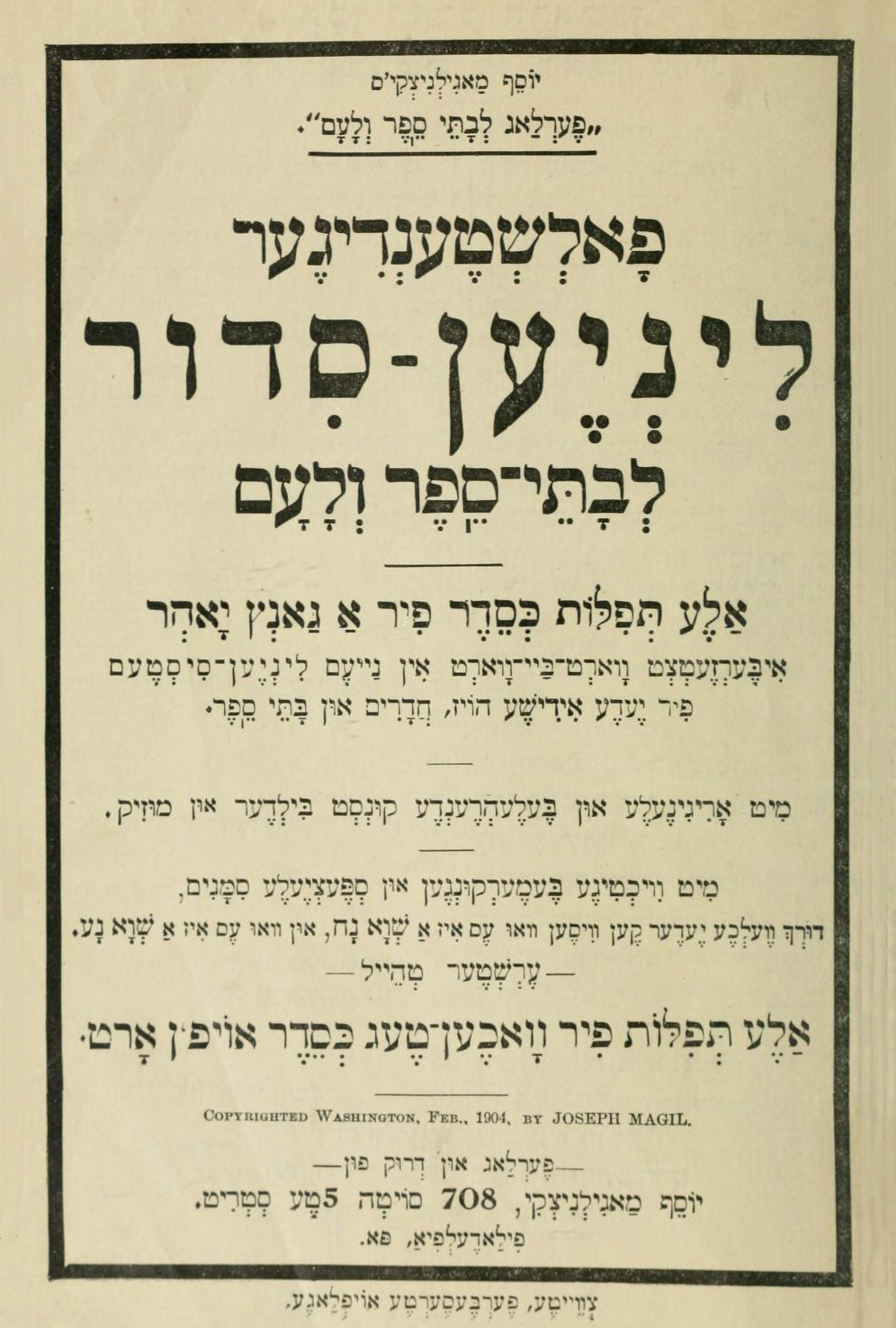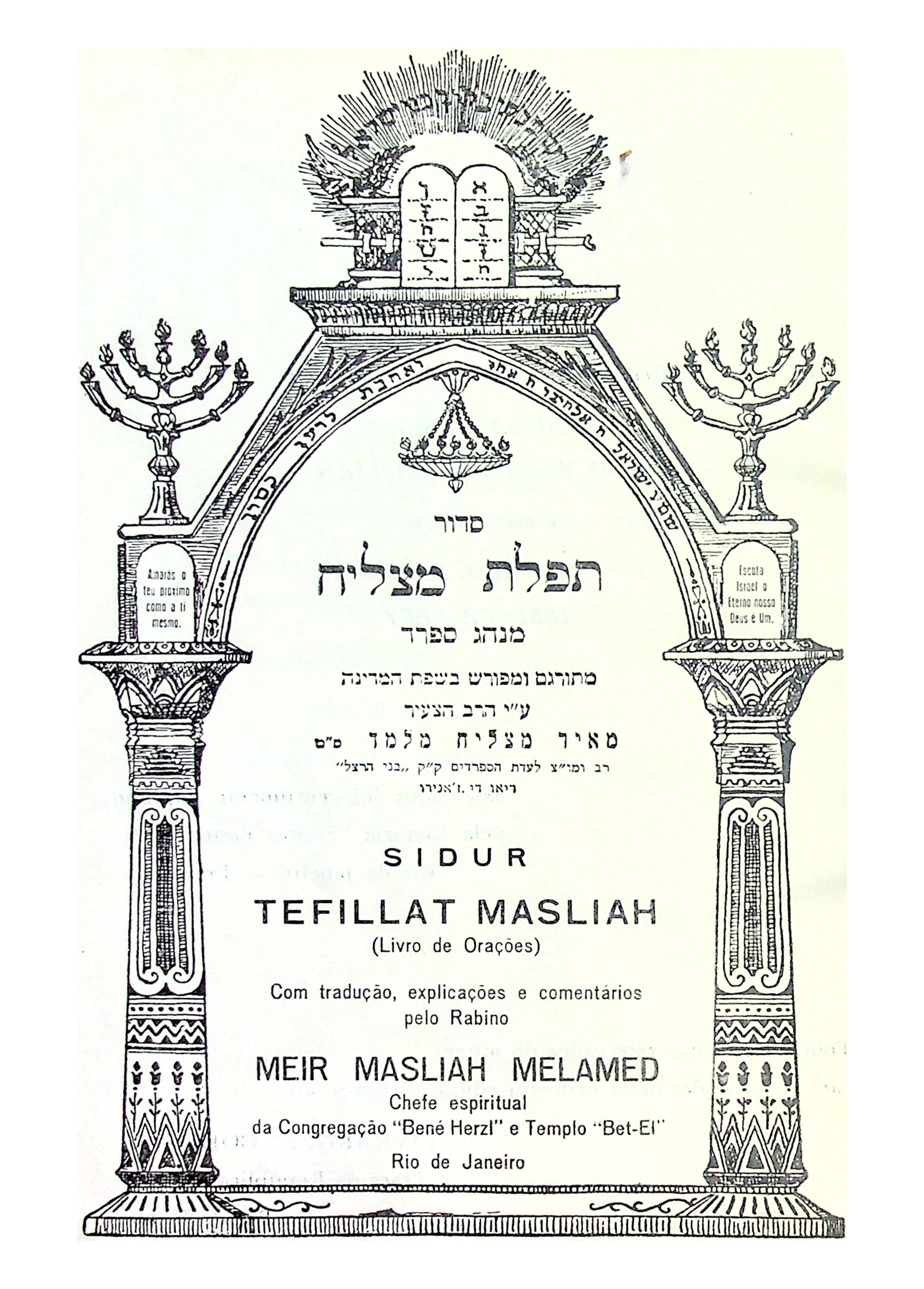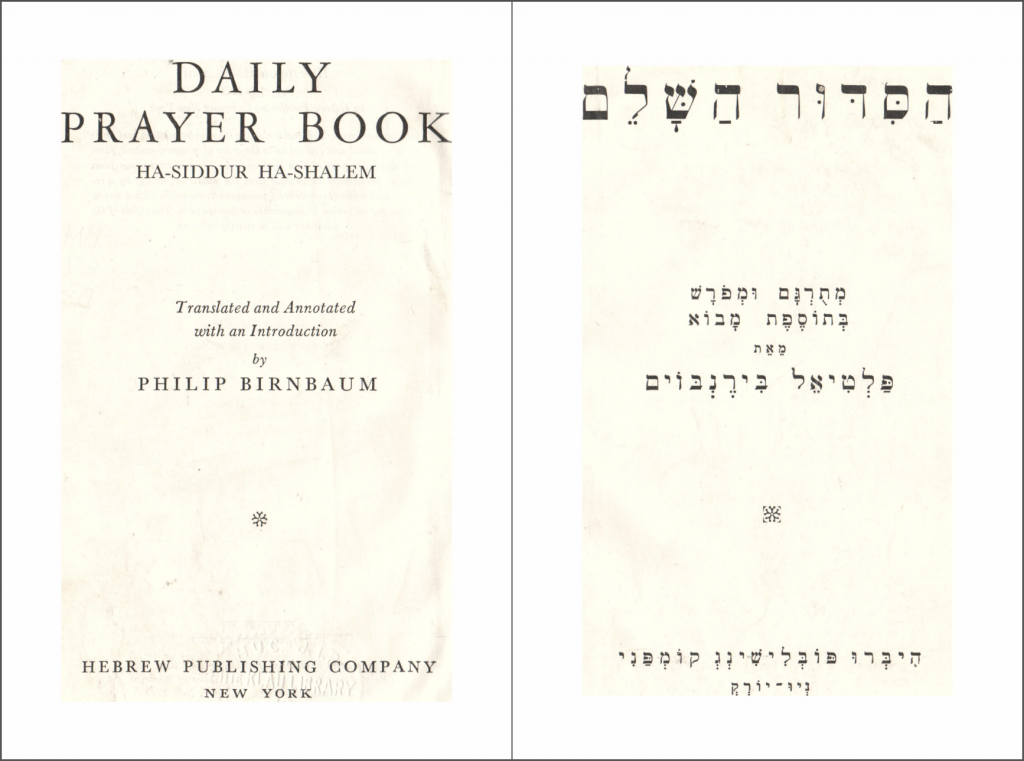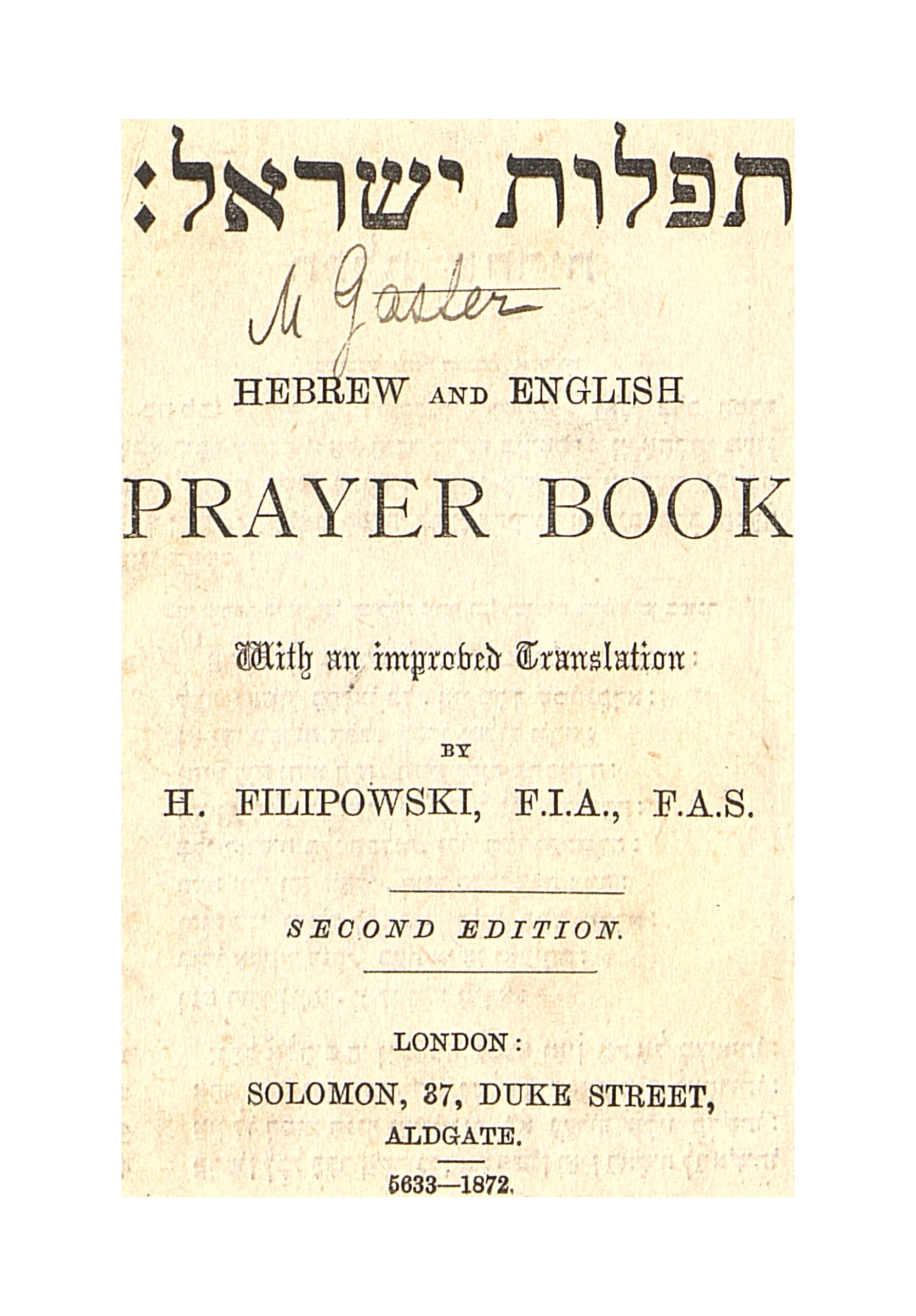Siddur Kol Bo: Seder Tefilot Mikol ha-Shanah im Targum Anglit (1906) was the first bilingual Hebrew-English and comprehensive prayerbook published by the Hebrew Publishing Company. The translation is mostly unattributed, although in the preface the unnamed editors take credit for translating several prayers and prayer sections that lacked adequate translations.
This digital edition presents the first complete imaging of this prayerbook. Google Books scanned a copy of the siddur in the collection of the University of California. However, that digital edition, only available via the Hathi Trust, is missing a good number of pages (602-629, 661-689, and the final kaddish pages). So I visited the HUC Klau library in Cincinnati and added scans of the missing pages, sharing the entirety here through our repository of scanned prayer books on the Internet Archive.

PREFACE.
In bringing before the devoted Hebrew public a new English translation of the Hebrew prayer book, we deem it necessary to offer to the public a few explanatory remarks, to set forth the plan of our work as well as to justify a new English translation of the Jewish prayers in face of the many translations that preceded us.
This prayer book is not a revised edition of the Jewish religious hymns; it claims to be a new and complete work. In it the reader will find all the Jewish prayers without amissions, translated and ordered according to the old orthodox custom. For the sake of coherence or the English style, and for the sake of a better understanding of the Hebrew text, we were at times obliged to reject many of the earlier translations of many prayers, and replaced them by such a translation which is most likely to be understood by the devoted worshipper and which answers best to the demands of the Hebrew style and grammar. Many of the preceding translations of the Jewish prayer book missed their purpose by paying too much attention to the English style and losing hereby sight of the Hebrew text, forgetting that to render the translation as beautiful and as poetic as the text is to deal with an impossibility, since no translation can be as good, even half as good as the text; Semistic poetry can never be translated into the Anglo-Saxon tongue without losing much of its beauty and charm of expression. Others, again, were mislead by lending their entire attention to the Hebrew text given too little consideration to the English idiom, forgetting that an English translation of the Jewish prayers is purposed for the multitude of our co-religionists to whom Hebrew is a dead language, intelligible only through a good and idiomatic English translation.
From these errors we have learned to understand what the translation of the Hebrew prayer book should and should not be. Our policy was, therefore, to keep ourselves in the golden middle. We allowed linguistic beauty and Semitic imagination to display their charm only in a measure as would be comprehensible by tbe occidental mind. On the whole, we were very careful not to cultivate the one on the expense of tbe other. In our new edition of the Hebrew prayers, we have translated also all such prayers, which, for one reason or another, ban never been translated before in any of the modem languages. We refer to such prayers as אביי הוה מסדר, איזהו מקומן, במה מדליקין, ברייתא דקטרת, ברכת כהנים, סדר כפרות, סדר מילה, תקיעת שופר etc.
We were conscious of the hard task we have set before us, and we realized fully the difficulties, which we would have to confront in rendering a correct and complete translation of the Jewish prayers. Our joy and satisfaction is, therefore, the greater when we see the work before us done, and, we think, with the aid of God, well done. Our reward shall be when our work does not miss its purpose to inspire every worshipper and to kindle his devoted heart with such a religious enthusiasm which alone makes our prayers acceptable by God.

“📖 סדור כל בו (אשכנז) | Siddur Kol Bo, a bilingual Hebrew-English prayerbook compiled by the Hebrew Publishing Company (1906)” is shared through the Open Siddur Project with a Creative Commons Public Domain Dedication 1.0 Universal license.










Leave a Reply